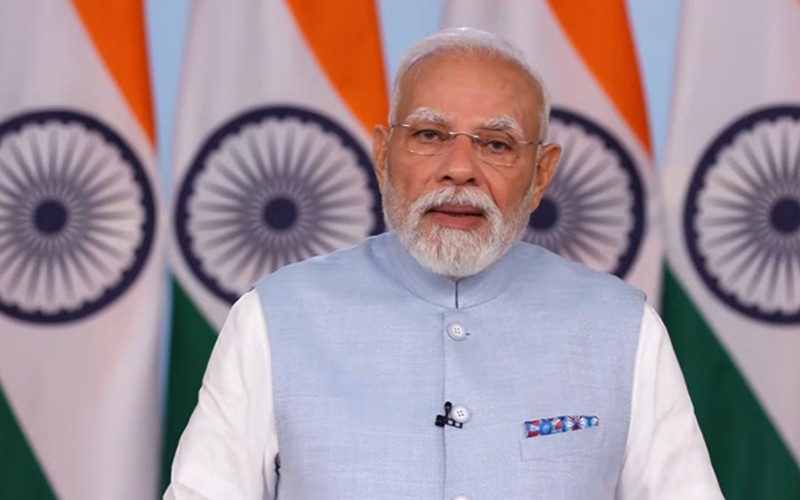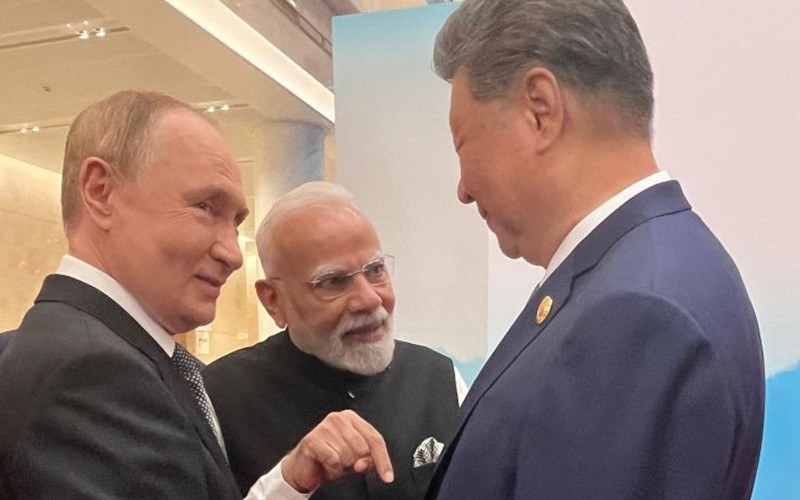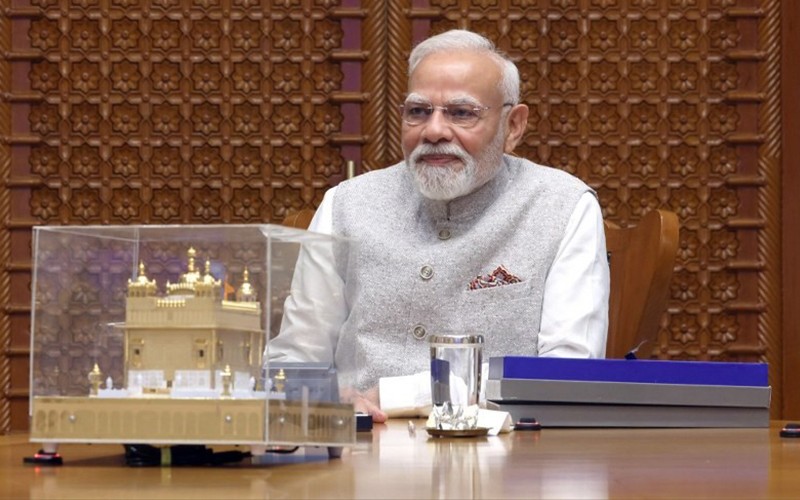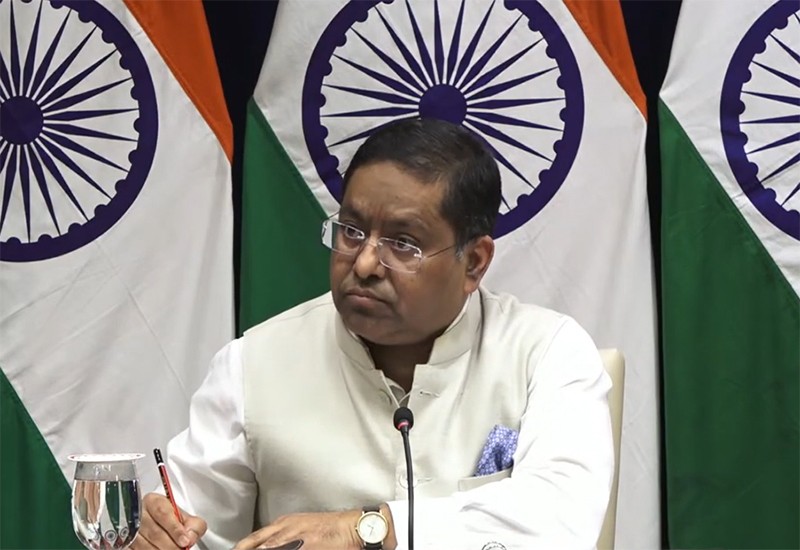Amit Shah calls GST 2.0 'trust-based tax system'
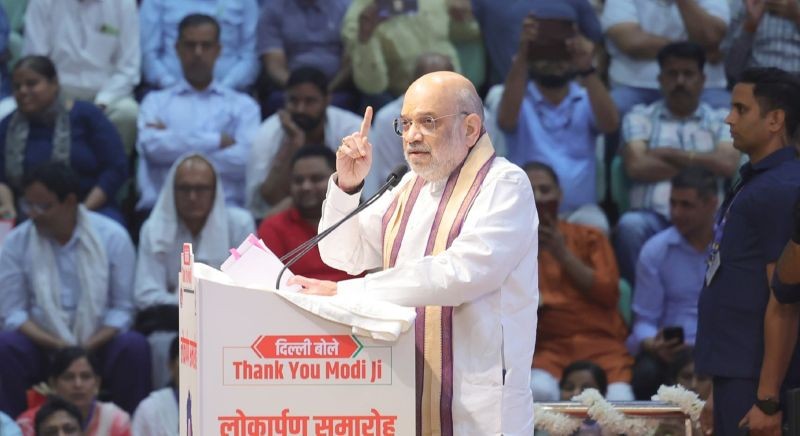
New Delhi/IBNS: Union Home Minister Amit Shah has called the GST 2.0 "a trust-based tax system in the country" as the new simplified slabs of taxes came into effect on Monday in much relief for people.
The new slabs are aimed at boosting production as well as consumption in the backdrop of the US' 50 percent tariff on Indian goods.
In an exclusive interview with NDTV, Shah said, "Electricity, cement, daily consumption of food, healthcare, insurance, automobiles, cars, trucks, tractors, and all products used in agriculture will be cheaper. This is a very big decision.
"People will start receiving benefits today onwards. I believe that this will increase production and consumption. There will be a trust-based tax system in the country."
"Whenever there is an increase, the government reduces it. Prime Minister Narendra Modi has made this big decision. There will be trust in the 1.3 billion people of the country that tax is not to increase the government's income. It is to run the country. I believe that there will be a new era of mutual trust between the lender and the government," the Home Minister added.
The long-anticipated rationalisation—seen as a relief for the middle class—abolishes the 12 percent and 28 percent categories, leaving only the 5 percent and 18 percent slabs.
Products previously taxed at 12 percent and 28 percent will now be redistributed into the lower brackets, making a vast range of items more affordable.
An additional slab of 40 percent has been kept for sin goods, sugary products and super luxury items.
In his address to the nation on Sunday, Prime Minister Narendra Modi said September 22 will mark the implementation of a new phase of GST reforms, promising a significant positive impact on the lives of every citizen and setting the country on a path to accelerated growth and development.
Modi said: "These reforms will accelerate India's growth story, simplify business, make investment more attractive, and make every state an equal partner in the race for development."
What gets cheaper
Consumer durables: Air conditioners, televisions, refrigerators and washing machines will now face 18% GST instead of 28%.
Daily-use goods: Ghee, nuts, bottled water (20 litres), footwear, medicines, medical devices, pencils, bicycles, umbrellas and hairpins have been shifted from 12% to 5%.
Milk products: UHT milk becomes tax-free, while condensed milk, butter, ghee, paneer and cheese are now in the 5% or nil category.
Staples: Malt, starches, pasta, cornflakes, biscuits, chocolates and cocoa products drop from 12–18% to 5%.
Dry fruits and nuts: Almonds, cashews, pistachios, hazelnuts and dates move from 12% to 5%.
Sugar and confectionery: Refined sugar, syrups, toffees and candies are taxed at 5%.
Packaged foods: Vegetable oils, edible spreads, meat and fish products, sausages and malt-based foods reduced to 5%.
Snacks: Bhujia, mixtures, chabena and similar packaged items drop from 12% to 5%.
Drinking water: Mineral, natural and aerated water without sugar or flavour cut from 18% to 5%.
Fertilisers and crop inputs: Reduced from 12–18% to 5%.
Health products: Life-saving drugs, medical devices and allied items reduced to 5% or exempted.
Education: Books, learning aids and similar items fall to nil or 5%.
Electronics: Entry-level appliances move from 28% to 18%.
Footwear and textiles: Down from 12% to 5%.
Paper: Certain grades made tax-free.
Personal care: Hair oil, shampoo, toothpaste and dental floss slashed from 18% to 5%.
Energy and construction: Renewable energy equipment, building materials and allied items cut to 5%.
Others: Sports goods, toys, leather, wood products and handicrafts shifted to 5%.
What stays costlier
Sin goods: Pan masala, gutkha, zarda, bidis and cigarettes remain under high GST plus cess until cess borrowings are fully repaid. Valuation will now be linked to retail sale price rather than transaction value to prevent leakages.
Sugary drinks: Flavoured and aerated beverages will see GST raised from 28% to 40%.
Luxury items: Cigarettes, premium liquor and high-end cars stay in the 40% bracket. Imported armoured sedans will be exempt only when purchased for official state use, such as by the President’s Secretariat.
Coal: Taxed higher at 18%, up from 5%, raising costs for coal-reliant industries.
Restaurants: Those in specified premises will no longer be allowed the 18% rate with input tax credit.
Lotteries and intermediary services: Revised valuation rules will keep their tax burden unchanged.
Relief on health insurance
The Council has exempted health insurance premiums from GST, eliminating the earlier 18% levy.
This is expected to increase coverage in a country where fewer than 20% of citizens have private health policies.
While widely welcomed by insurers and policyholders, several states flagged potential revenue losses.
The GST Council also removed Goods and Services Tax on individual life insurance policies as part of its wider overhaul of the indirect tax framework.
Under the revised structure, effective September 22, all individual health covers—including family floater plans and senior citizen policies—will also be exempt from GST.
This exemption will make purchasing health or life insurance more affordable for consumers.
“Many MPs questioned taxing insurance premiums. We'll make sure benefits of insurance GST reforms is passed on to families, individuals,” said Nirmala Sitharaman.
Relief for small cars, bikes
As part of Wednesday’s GST restructuring, small cars and motorcycles with engines below 350cc have received a 10 percentage point tax cut. They now fall into the 18% bracket following the scrapping of the 28% slab.
According to a chart shared by Prime Minister Narendra Modi, small cars are defined as petrol vehicles with engines up to 1200cc, or diesel variants up to 1500cc, with a maximum length of 4000 mm.
In contrast, motorcycles above 350cc and larger cars will be placed in the new 40% luxury goods slab once the revised rates take effect on September 22.
Electric vehicles will continue to attract just 5% GST.--


